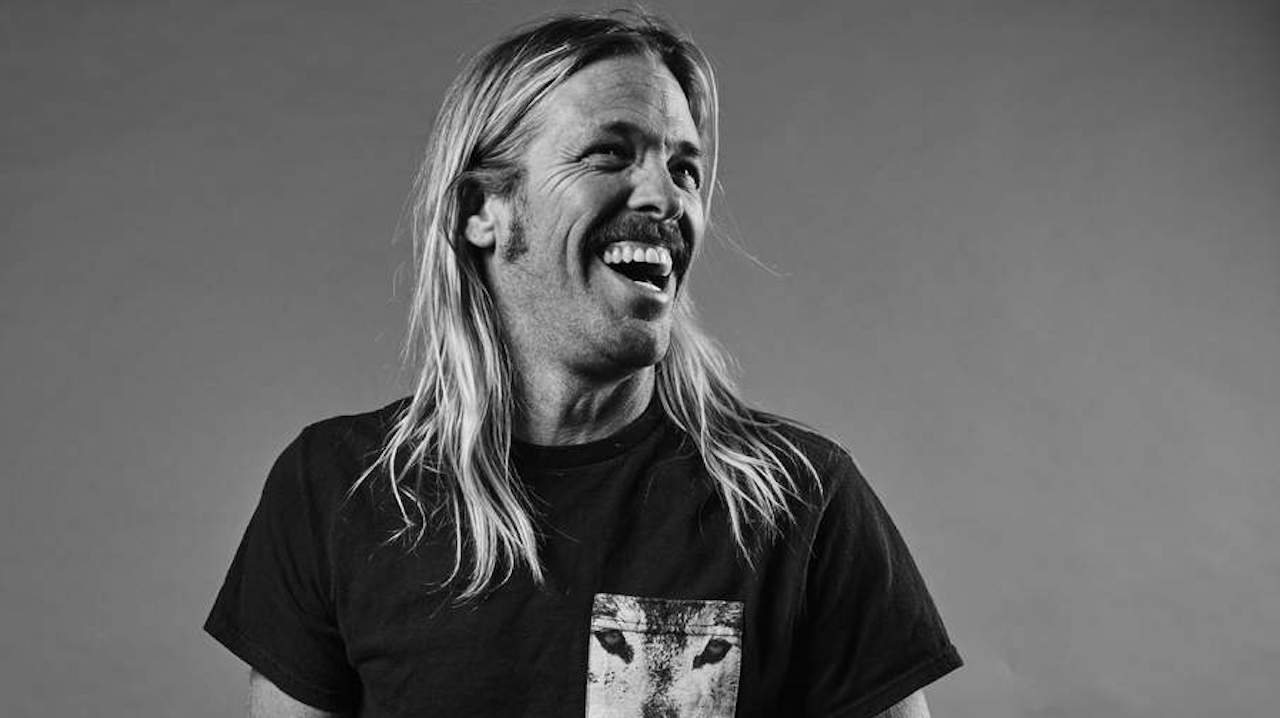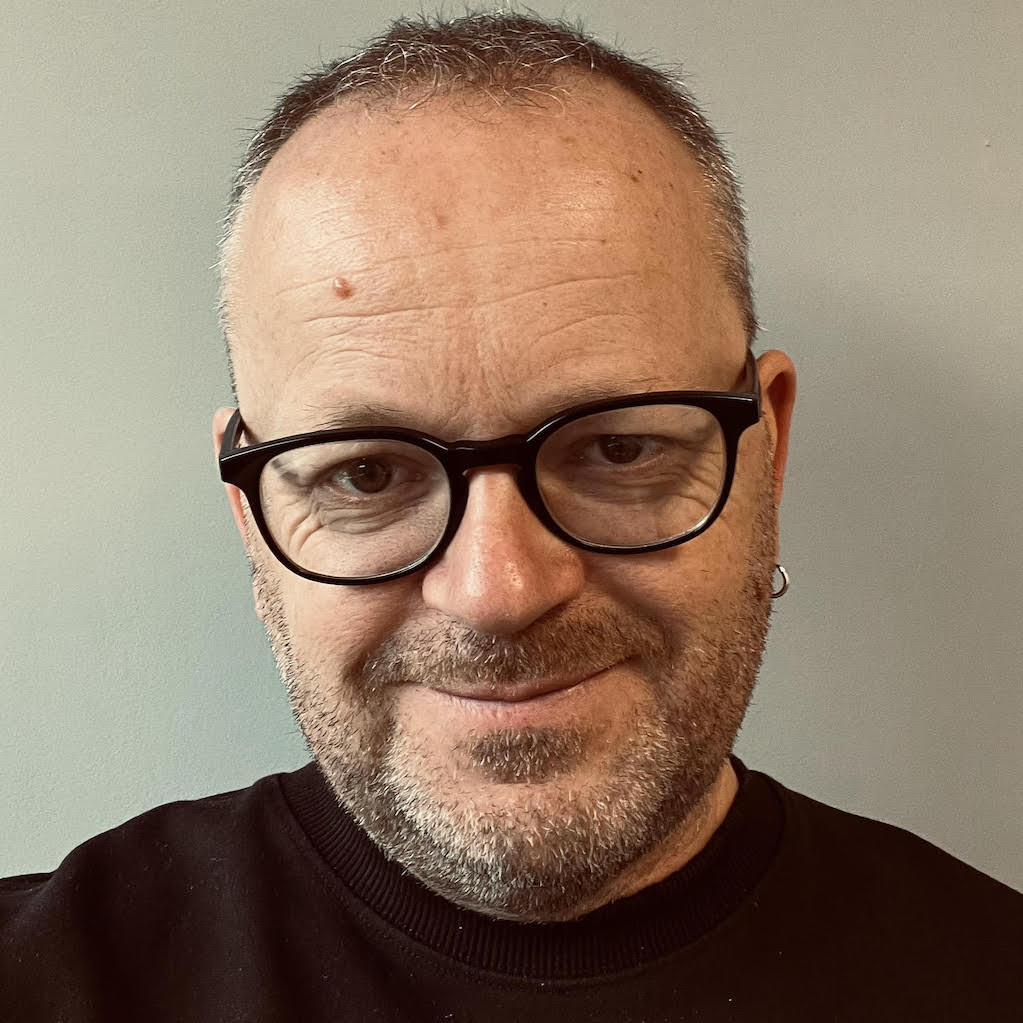They should do this now, on different scales, for every rock star who passes. This is how to celebrate a life in music.
The Taylor Hawkins Tribute was a triumph. Emotional, honest, heart-felt, it was a reminder of why we like rock music and the contradiction at the heart of it: how can something so life-affirming be the cause of so much tragedy?
The guests onstage were a constant reminder that Taylor Hawkins’ death is not an unusual story.
There’s Chrissie Hynde, who lost two of her bandmates – James Honeyman-Scott (aged 25) and Pete Farndon (30) – to drugs. There’s John Paul Jones, whose band Led Zeppelin ended with the death of John Bonham, aged 32. Roger Taylor and Brian May: Freddie Mercury dead at 45 (it's hard to believe, but Taylor Hawkins lived to be five years older than Freddie).
There’s Brian Johnson, who got his big break following the death of previous AC/DC singer Bon Scott (aged 33). Lars Ulrich who lost Cliff Burton (aged 24) in a road accident. Joe Walsh, who lost a three year old daughter also in an accident. Paul McCartney? Who knows what would’ve happened if John Lennon hadn’t been murdered, aged 40.
There’s Rush, mourning the loss of Neil Peart (67), a man who had to deal with personal tragedies of his own. Wolfgang Van Halen mourning a father gone too soon. Nile Rodgers, who lost his bandmate Bernard Edwards (43) after a gig in Tokyo. Rodgers was there in Columbia the day Taylor Hawkins died, appearing at the same festival. And there’s Grohl, whose last band, Nirvana, ended in a suicide that shocked the world.
Viewed like this, it would be tempting to see rock music as some sort of death cult: a world in which reckless behaviour is encouraged, fuck-ups are celebrated as heroes and the dead become martyrs and saints.
It would be tempting, but it would be wrong.
You could see it most obviously in the kids – Nandi Bushell, Shane Hawkins, Violet Grohl – picking up the baton, full of life. Nandi beaming with positivity. Shane: inspirational.
The Taylor Hawkins Tribute Concert was a reminder of how genuinely relevant and life-affirming rock music can be. The music of the Foo Fighters was born out of grief, catharsis and recovery. It's Dave Grohl backing himself, refusing to let the legacy of Nirvana be just one of death and suicide.
It’s there in the song and album titles – There Is Nothing Left To Lose, In Your Honor, Wasting Light, I’ll Stick Around, DOA – and it’s in lyrics themselves. These Days conducts a conversation about grief with the audience.
Grohl: “One of these days the ground will drop out from beneath your feet /One of these days your heart will stop and play its final beat…”
Audience (singing): “But it’s alright, yeah it’s alright...”
Grohl (vehemently): “That’s easy for you to say!”
The Foos became more than just a pity project. Grohl grew into the role of rock’s most articulate and reasonable spokesperson. His rep as the “nicest man in rock” underlines one of rock’s rarely celebrated qualities: it’s about friendship and community.
Taylor Hawkins exuded positivity. The tribute concert is only possible because of all the connections they made. With their onstage cover versions and guest appearances, their disco/metal side-projects, their daft videos – Hawkins and Grohl were representative of a new breed of rock star: less ego, less posturing, more good times.
Rock’n’roll is traditionally made by people in their 20s for people in their teens. It’s like a note slid under our bedroom doors by our big brothers and sisters that says everything will be alright: we will get laid, we will fall in love, we will get high, our parents won’t rule our lives forever. The Foos added to that: you can get through this.
So Saturday was a glorious wake for Taylor, but it was also a tribute to the power of music. Unexpectedly, it was a celebration of drumming itself.
Stewart Copeland, Roger Taylor, Rufus Taylor, Lars Ulrich, Josh Freese, Travis Barker, Omar Hakim, Nandi Bushell, Danny Goffey, Shane Hawkins, Dave Grohl himself – never has a Wembley audience been so conscious of who is behind the kit.
Never have performers seemed so vulnerable, or drummers so physical – a mesmerising blur of arms and hair, legs and hearts pumping. Here to pay tribute to a dead guy, you become conscious of just how alive they really are.
Dave Grohl’s thumping toms turning Oasis’s Live Forever into a rock juggernaut, Travis Barker spinning sticks in his fingers casually, like he hasn’t just performed minor miracles of timing, Josh Freese spraying beats. Stuart Copeland: a monster, all charisma and grins.
There’s Rufus Taylor, son of Roger, who first met Taylor Hawkins when he was 6. In his words, he is part of a “crazy line of Taylors influencing Taylors” (Roger > Taylor > Rufus). Days after Hawkins’ death, Rufus wrote on Instagram: “Taylor, you were my big brother, my hero, my mentor, life support, the reason I’m in this business, you were everything to me… And of course the most ridiculous drummer on the planet.”
When he joins the Foos for These Days and Best Of You, it’s obvious that he doesn’t just share a name with him, he looks like Hawkins too. He kills it and people are already saying that he is the obvious replacement. Even his Darkness bandmate Justin Hawkins seemed to concede it, commenting: “Rufus’ performance was really quite astounding… He looked like he was conceived and born in a stadium… I love playing with him, but it was a delight to watch him play too.”
(“There’s stuff he can do now that I can’t,” Hawkins wrote of Rufus in an interview with drumming magazine Rhythm in 2021, “but he has the benefit of youth on his side!”)
And then there’s Shane Hawkins. Heart-breaking and heart-mending all at once: an astonishing performance, a feat of inner strength, a symbol of life-going-on. (You think of a much older Jason Bonham, on another stage in London, taking his father’s spot and the members of Led Zeppelin giving him a “we’re not worthy” bow at the end.)
The show ends with Grohl onstage alone for Everlong. In concert, he often plays the beginning of the song solo. Around 4 minutes in, Taylor Hawkins would start a drum roll that took the song to its explosive climax.
Tonight, Wembley waits for a beat that never comes.
For all the noise that has filled the stadium for the last few hours, it’s the absence of that beat that gets you.

